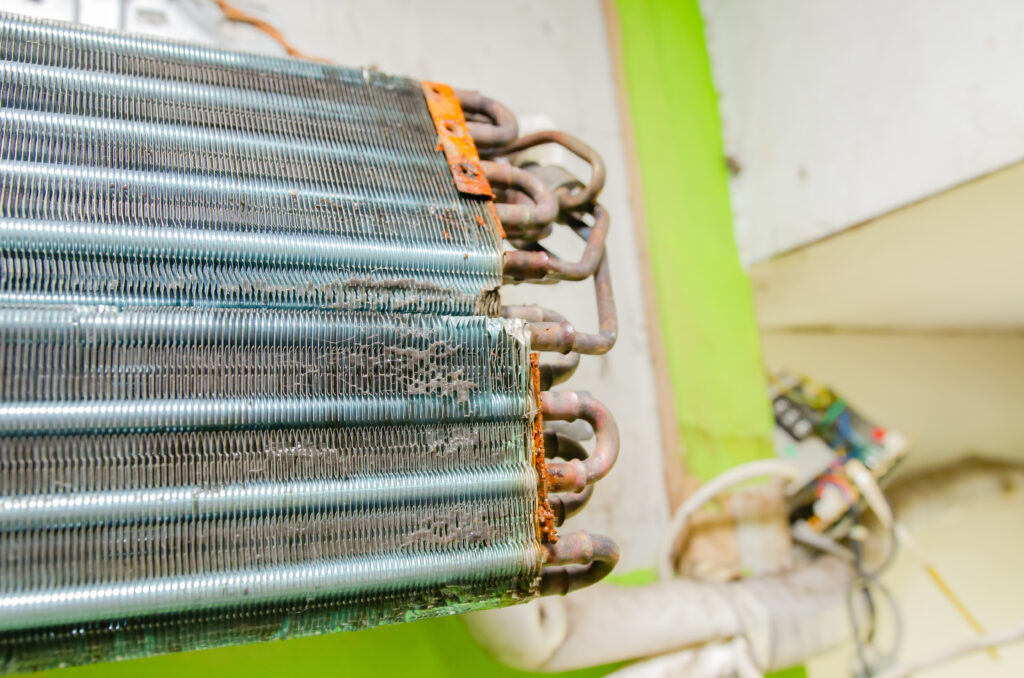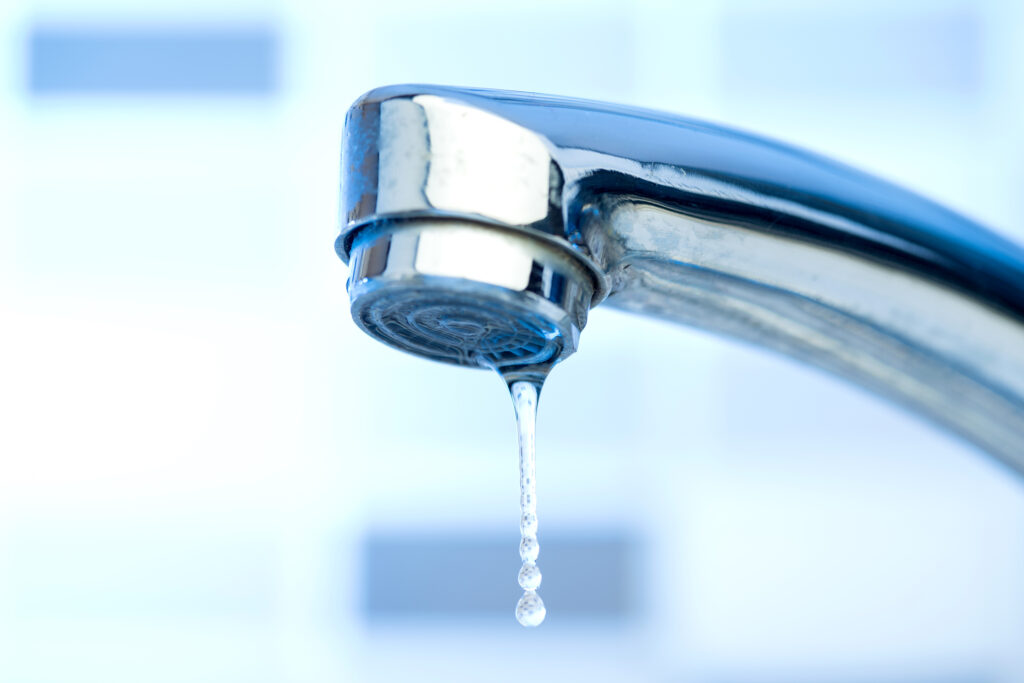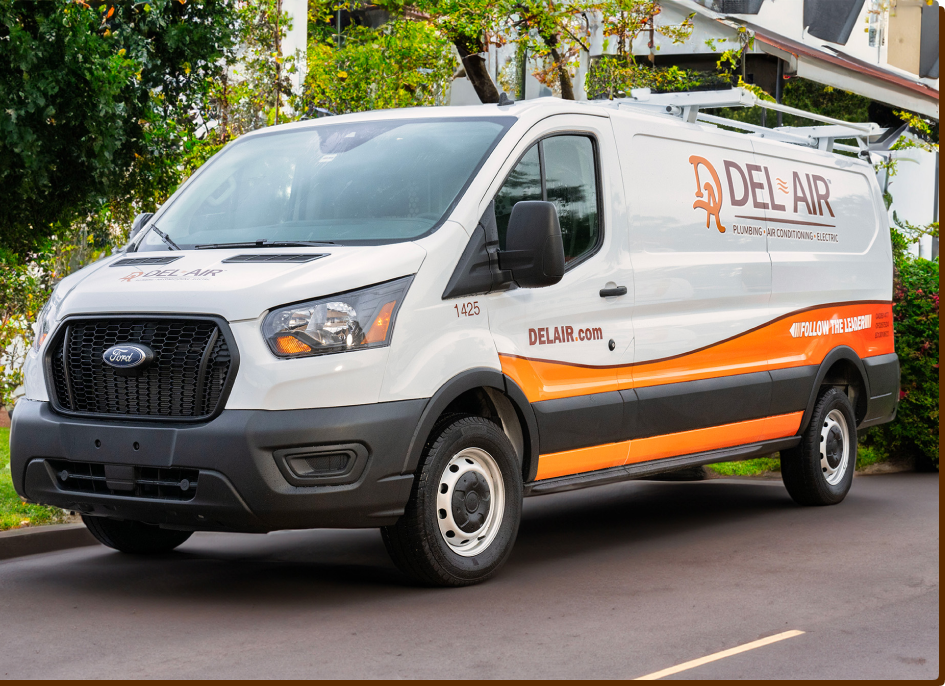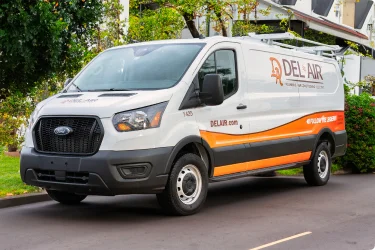Your HVAC system pumps out perfectly conditioned air all on its own so you don’t have to think about it often, but you notice immediately when it stops working properly. Suddenly, your home starts feeling just as unbearably hot as the outdoor Florida air. What do you do?
Should you tackle your HVAC maintenance yourself or call Del-Air? This is a question many homeowners ask. DIY HVAC maintenance lets you keep your system running properly, reducing the chances of your air conditioning leaving you sweaty in the Florida heat. However, some tasks are better left to professionals who have years of training and experience.
Our handy guide helps you determine when you should DIY your HVAC maintenance and when you should go the professional route.
Maintenance vs. Repairs
Before we jump in to who should do what, let’s break down HVAC tasks into two groups: maintenance and repairs. Maintenance helps keep the unit in working order. These tasks improve efficiency and prevent future problems with the system. Many maintenance tasks are simple and safe enough for you to handle on your own.
Repair comes into play when something goes wrong. They almost always require the help of a professional for fast, safe and proper repairs. Never try to make a repair that is outside your skill set. Working on your own unit can cause more severe damage, cause injury or increase the risk of things like fires and gas leaks.
A DIY Disclaimer
Before starting any DIY items at home, make sure you feel comfortable doing so. Keep in mind that many manufacturers offer 10 year warranties, and those warranties can be voided in certain scenarios if you break parts. Check your warranty before getting started, and contact a professional for any mechanical fixes on your unit.
When to DIY Your HVAC Issues
Easy AC maintenance and basic troubleshooting tasks are generally safe and simple enough for you to handle on your own. In fact, those straightforward tasks can help you extend the life of your system. Always consider whether or not you feel comfortable doing a particular task related to the HVAC system before you start.
Here are some benefits of performing routine maintenance tasks on your HVAC unit, whether you do the maintenance yourself or hire a professional:
- Efficient Operation: Your system doesn’t have to work as hard when you take care of it. This allows the heating and cooling system to work efficiently, which saves energy and ultimately saves you money. Efficient systems run smoothly, keeping your house at a comfortable temperature.
- Damage Prevention: Many HVAC maintenance tasks are key to preventing major damage to the system. Just like your car needs regular oil changes and tune-ups if you want to keep it running, your HVAC system needs regular maintenance to keep the parts from breaking or wearing out. Maintenance is much cheaper than repairing damage caused by lack of care.
- Early Problem Detection: When you regularly inspect and care for your system, you are better able to spot a problem when it first starts. Repairs are often easier and cheaper when you catch the problem early. A small problem often causes additional damage or affects other parts of the system, which can make the situation worse. When you hire Del-Air to perform regular tune-ups, our expert technicians can also help spot those beginning problems before they become major repairs.
- Fewer Emergency Problems: When you keep your HVAC system in good working condition, you reduce the risk of surprise emergency issues. If your air conditioning system breaks down in the middle of July in Florida, it will seem like you have to wait forever to get the repairs made, even if it’s only a few hours. You may actually have to wait for a pro to show up, since those high-temperature times are very busy. Keep yourself consistently comfortable with regular maintenance to your HVAC system.
- Healthier Home Environment: Cleaning is a major part of the DIY HVAC maintenance routine. Keeping your system clean, from the filters to the coils, minimizes the amount of dust and other potential contaminants that circulate through your vents. That means not only does your home feel comfortable temperature-wise, you can breathe easier with less junk floating around your home environment.
- Safety: Poorly performing HVAC systems put your family’s safety at risk. When something goes wrong, possible side effects include carbon monoxide leaks, gas leaks and the risk of fire in electric units. By minimizing the risk of those problems, you keep your home and family safer.
- System Longevity: When you regularly care for your HVAC system, you increase the length of its life. The system performs longer when you keep it up. Considering the investment required for a new HVAC system, getting more life out of your existing unit is definitely a wise choice.
- Cheaper Operation: When your system runs efficiently and doesn’t experience major repair issues, you save money. Who doesn’t want to keep more money in the bank?
Changing the Filter
A simple HVAC service DIY task any homeowner can handle is changing the air filter in the unit. A clean filter is essential for your HVAC system to operate efficiently. When the filter is dirty, your system may consumer higher amounts of energy to operate. Conditioned air pumped through the system often doesn’t feel as cold as you want it to. Damage to the system is also a possibility, as is an increase in dust and other debris in the air.
If you haven’t changed the filter in a while, it can become clogged, which prevents air from moving through and could cause overheating. Some units automatically go into safe mode in this situation. Safe mode essentially means the fans still run but the unit doesn’t condition the air. The air that does move is unconditioned air.
They type of filter dictates how often you need to change the component. Regular disposable HVAC air filters need to be changed once per month. It’s a good idea to clean a washable filter on the same monthly schedule. This renews the filter before the dirt and debris has a chance to build up.
If your home has lots of dust, pet hair or other conditions that cause the air filter to get dirty quickly, you may need to change the filter more frequently. Pull the filter out occasionally to see if it needs to be changed. You can see the dirt, pet hair and other debris on the filter.
Filters are easy to change. You’ll find them in the portion of the HVAC system that is inside the home. Look for the filter in the air exchange system near the place where the conditioned air moves into the ductwork. The old filter slides out easily for removal. Note the way the existing filter was in the unit so you can insert the new filter the same way.
Cleaning Exterior HVAC Components
Most HVAC units include both the unit inside and an air conditioning component outside the home. Because that portion sits unprotected outside, it quickly becomes dirty or blocked by outdoor debris if you don’t clean it regularly. Cleaning the outdoor HVAC unit helps the system run more efficiently and prevents blockages that can overwork the system.
Not sure how to clean the HVAC unit? Here are some outdoor HVAC cleaning tips:
- Turn off the system before cleaning the unit: Shutting off the power source before cleaning the unit minimizes the potential for injury. The outside unit should have an electrical disconnect in a metal box. Use this disconnect feature to turn off power to the outside unit before proceeding.
- Remove debris surrounding the unit: Walk around the outdoor unit to identify any debris that is near or on the system. Remove things like trash, leaves or branches.
- Trim nearby bushes and other plants: Depending on the location of your outdoor unit, you may need to perform routine trimming of nearby plants to keep the branches and debris from overtaking the unit. Cut the branches so nothing is within 18 to 24 inches of the unit. Consider transplanting any fast-growing plants to another area to minimize the trimming required.
- Move large items near the unit: Beyond plant growth, look for other items that could potentially block the operation of the exterior HVAC unit. Move outdoor landscaping features, seating or other items in the immediate vicinity of the unit. Don’t lean or store items on or near the unit, as this increases the risk of damage and can block airflow.
- Spray down the exterior unit: A regular hose-down removes dirt and debris that accumulate on the exterior unit. A regular garden hose does the trick without damaging the unit.
- Apply a spray coil cleaner: Coil cleaner products use heavy-duty detergents to remove all sorts of dirt and debris from your exterior HVAC unit. Follow the directions on the cleaner, rinsing the unit thoroughly when you are finished.
Performing a Physical Inspection
Regularly inspecting your system helps identify issues early. Grab a flashlight and look at the unit from all angles. Look for any loose or damaged connections. Note condensation or leaks you spot in or near the unit. Check the unit to make sure it is still level and has ample support. Look at any visible ductwork to spot holes, cracks or other issues that prevent the air from flowing efficiently.
If you notice anything out of the ordinary, give your HVAC professional a call. Many of these issues require repairs from an experienced technician.
Testing Your Thermostat
Thermostats let you easily set and forget when it comes to controlling your HVAC system. Digital thermostats typically let you create a schedule to change the temperature at particular times.
As great as they are, digital thermostats sometimes have problems, which results in incorrect temperatures coming from your vents.
Clearing Obstructions
Blocked vents and ductwork can stop cool air from reaching your rooms. Those obstructions make it difficult for the system to heat or cool the room efficiently.
When clearing obstructions, check the following potential blockages:
- Curtains, drapes or other items covering a vent
- Furniture placed in front of or over vents
- Closed dampers
- Obstructions in ductwork — get help from a professional if you don’t see any easily accessible blockages
Checking the Power Source
Some problems with HVAC systems occur when the power supply is interrupted. An example is the when the breaker that runs the HVAC system gets tripped. This may happen during peak use, such as afternoons on hot Florida summer days. If the system shuts down unexpectedly, check the circuit breaker to determine if you need to reset that breaker.
If you notice that your system trips the breaker frequently, give Del-Air a call. A professional can help you determine why your system is working so hard.
When to Call Del-Air
It’s tempting to tackle home repairs on your own, but the complexity of an HVAC system often requires the expertise of a professional. As a general rule, call Del-Air any time the issue involves taking off panels and messing with the inner workings of the system. Essentially, this means anything that goes beyond the scope of basic maintenance and HVAC DIY troubleshooting requires a professional.
Maintenance and Care Tasks Better Left to Professionals
Beyond basic cleaning, filter changing and minimal troubleshooting, most HVAC care tasks should default to the professional’s to-do list. This is particularly true when the task involves any of the internal components other than the filter.
Here are some maintenance and repair tasks to schedule with your HVAC professional:
- Repairing electrical and fuel line connections: The electrical connections within the HVAC system can loosen, making the unit potentially unsafe. Gas or oil leaks at the fuel line connections also present a serious danger. These types of repairs are too risky for a homeowner to complete. Always let a professional handle issues related to power connections in the unit.
- System control inspections: If the unit doesn’t seem to operate properly, call Del-Air to inspect the system controls. The start, operation and shut-off sequence can be interrupted when the system has a problem. Let a professional troubleshoot and repair those system control issues.
- Checking the refrigerant charge: An air conditioning unit needs an appropriate level of refrigerant to operate properly. If the system develops a leak, the refrigerant may be low, which interferes with the operation of the system. It may not cool properly. Too high of a charge makes the system run inefficiently. Let a professional assess your refrigerant to determine if it is too high, too low or just right.
- Adjusting the blower: Blowers sometimes need to be adjusted in order to get the proper airflow through the system to keep your home comfortable. Never mess with the blower yourself. Let a pro handle the necessary adjustments.
Signs You Need to Call Del-Air
If you’re not sure whether you need a professional touch, look for some key signs that indicate your HVAC issue isn’t a DIY situation. Here are some times to rely on the pros:
- The unit is making strange sounds: Unusual noises are often a sign of an internal problem with the HVAC unit, such as a bad belt, low refrigerant or a leak. Instead of removing panels and digging around inside the unit, give a professional a call.
- You smell strange odors coming from the HVAC system: Odors coming from an HVAC system range from something as simple as a dirty air filter to something as dangerous as a gas leak. Possible odors you might smell from your heating and cooling system include overheating electrical odors, burning, gas and damp or musty smells. Let a professional help you identify the cause of the odor, especially if it smells like the unit is overheating, burning or leaking gas. These situations can be very dangerous.
- The air conditioning turns on and off quickly: This is another indicator of an internal problem affecting the ability of the unit to work consistently. The problem, called short cycling, often means the system isn’t going through the correct on and off cycling. The problem may stem from low refrigerant, thermostat problems or an oversized unit. Let the pros do the digging to find the source of the problem.
- You spot a leak: Leaking is never normal with an HVAC unit. Before you call Del-Air, check your floor drain for clogs. If the floor drain is clear and free flowing, give us a call so we can determine the source of the leak. Problems with the evaporator coil, gaskets, fittings or tubing may be to blame.
- You know the issue is an electrical or wiring problem: It is not worth risking your own safety by messing with the wiring of an HVAC system. Let someone with professional experience and training work on the internal components.
- The air is not cold enough: If you can’t get the unit to cool the air efficiently by lowering the thermostat and replacing the filter, call a professional to identify the problem.
- Your utility bills are suddenly higher than normal: Normal fluctuations happen during extreme heat spells or periods of colder than normal temperatures. If your utility bill spikes when you don’t expect it, something could be causing the system to work inefficiently. While the filter can be the culprit, other potential problems include low refrigerant, bad compressor valves or other problems with the unit. These issues often need a professional’s touch.
- Basic home troubleshooting doesn’t work: You tested the thermostat, changed the filter and double-checked the breaker panel, but the AC still won’t work properly. If you’ve exhausted all of the safe DIY troubleshooting techniques with no success, it’s time to give Del-Air a call.
- Your gut tells you to call a pro: Sure, you can search for instruction on how to DIY certain HVAC repairs, but it’s often not worth the risk. All of the wiring and critical components inside the unit serve very specific purposes. One wrong move could completely ruin that component, which often results in very expensive replacements or repairs.
Tinkering with your own HVAC unit also puts you at risk for injury. Even if the repair turns out okay, your DIY repair could void the warrantee on the unit. That means this and all future repair costs fall on you. Most people have a solid of sense of when they are in over their heads. If you’re considering working on your HVAC but you have a nagging feeling that you should call for help, listen to your gut.
Keep Up Your HVAC With Del-Air’s Tune-Up
Maintaining your HVAC system is crucial to keeping the system running efficiently and reducing the need for repairs. Your DIY maintenance is a good start and helps tremendously, but scheduling a yearly HVAC tune-up with Del-Air gives you a professional way to keep your system running properly. If it’s been more than a year since you’ve had a tune-up from a professional, schedule an appointment right away.
Del-Air offers a 20 Point A/C Tune-up to check all of the important components of your system. The tune-up includes checks, lubrication and more. Call Del-Air at 888-831-2665 to schedule your appointment before you notice problems with your HVAC system.






